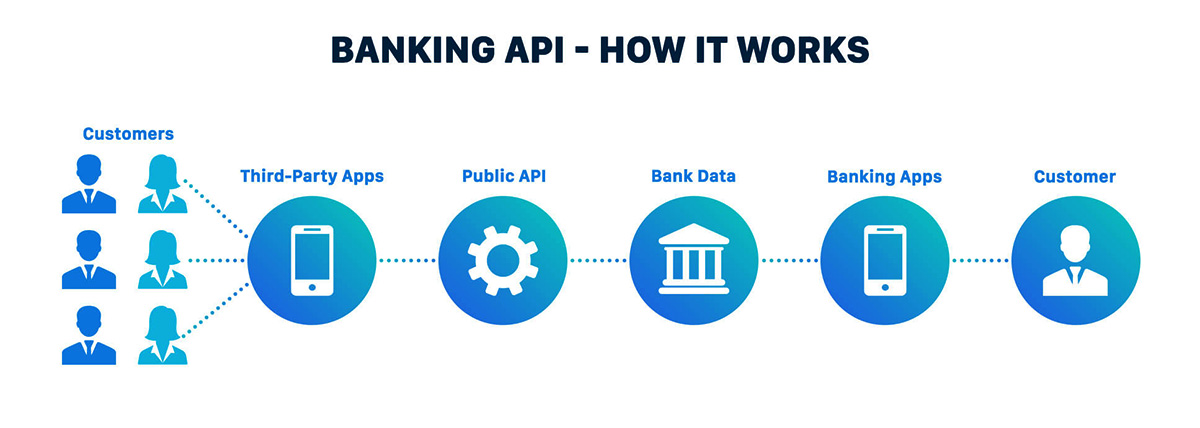

Finance
What Is Financial Education Services
Modified: March 1, 2024
Looking for financial education services to improve your understanding of finance? Learn about the benefits and importance of financial education with our comprehensive resources.
(Many of the links in this article redirect to a specific reviewed product. Your purchase of these products through affiliate links helps to generate commission for LiveWell, at no extra cost. Learn more)
Table of Contents
Introduction
Welcome to the world of finance, where knowledge truly is power. Whether you’re a seasoned investor or just starting to navigate the complexities of personal finance, understanding the ins and outs of money management is essential. This is where Financial Education Services (FES) come in. In this article, we will explore what Financial Education Services are and why they are essential in today’s world.
Financial Education Services refers to programs and resources designed to educate individuals about various aspects of personal finance, such as budgeting, saving, investing, and managing debt. These services aim to empower individuals with the knowledge and skills needed to make informed financial decisions and secure a stable financial future.
In today’s fast-paced and ever-changing financial landscape, having a solid understanding of finance is crucial. Yet, unfortunately, financial literacy rates are alarmingly low. Many individuals struggle with basic financial concepts and lack the necessary skills to effectively manage their money. This knowledge gap can lead to poor financial decisions, excessive debt, and limited opportunities for wealth creation.
Financial Education Services play a vital role in bridging this gap and equipping individuals with the tools they need to achieve financial success. These services are available from a variety of sources, including financial institutions, government agencies, nonprofit organizations, and online platforms.
There are several reasons why Financial Education Services are vital in today’s society. Firstly, they empower individuals to take control of their financial well-being. By providing education on topics like budgeting, saving, and investing, these services give individuals the knowledge and confidence to make sound financial decisions.
Furthermore, Financial Education Services help individuals develop critical thinking skills when it comes to financial matters. They teach individuals to analyze financial products, understand the potential risks and rewards, and evaluate their own financial goals and priorities. This enables individuals to make informed choices and avoid falling victim to predatory financial practices.
In addition, Financial Education Services have a societal impact. By equipping individuals with financial knowledge, these services contribute to the overall economic well-being of communities and nations. Financially literate individuals are more likely to contribute to economic growth, make wise investment decisions, and become successful entrepreneurs.
Overall, Financial Education Services are crucial in today’s world. They provide individuals with the knowledge, skills, and confidence to navigate the complex world of personal finance. Whether you’re looking to start investing, reduce debt, or simply improve your financial literacy, exploring the resources and programs offered by Financial Education Services can be a wise choice.
Definition of Financial Education Services
Financial Education Services encompass a variety of programs, resources, and tools aimed at educating individuals about personal finance and money management. These services are designed to provide individuals with the knowledge and skills they need to make informed financial decisions and achieve their financial goals.
At its core, financial education focuses on teaching individuals about fundamental financial concepts, such as budgeting, saving, investing, credit management, and retirement planning. It aims to improve financial literacy rates and empower individuals to take control of their financial well-being.
Financial Education Services can take different forms depending on the institution or organization providing them. They may include workshops, seminars, online courses, educational materials, one-on-one counseling sessions, and interactive tools or calculators.
Many Financial Education Services are offered by financial institutions such as banks, credit unions, and investment firms. These organizations understand the importance of financially literate clients and offer a range of educational resources to support their customers. These services may be free or have a nominal fee associated with them.
In addition to financial institutions, government agencies are also involved in providing financial education to the public. These agencies recognize the societal and economic benefits of having a financially literate population and invest in initiatives to improve financial literacy rates.
Nonprofit organizations and community groups also play a significant role in delivering Financial Education Services. They often focus on serving underserved communities and individuals who may not have access to traditional financial education resources. Their programs may include financial literacy workshops, coaching, and counseling to address the specific needs of their target audience.
In recent years, digital platforms have emerged as a popular medium for delivering Financial Education Services. Online courses, interactive tools, and mobile applications provide individuals with the convenience of accessing financial education resources at their own pace and on their preferred devices. These platforms often offer a wide range of topics and cater to individuals with different levels of financial knowledge and experience.
Overall, Financial Education Services serve as a crucial resource for individuals seeking to enhance their financial literacy. By providing education, guidance, and tools, these services empower individuals to make sound financial decisions, improve their financial well-being, and ultimately achieve their financial goals.
Importance of Financial Education Services
Financial Education Services play a vital role in today’s society, offering numerous benefits and advantages for individuals and communities. Here are some key reasons why these services are essential:
1. Empowering Individuals: Financial Education Services empower individuals by providing them with the knowledge and skills needed to understand and manage their finances effectively. By learning about budgeting, saving, investing, and debt management, individuals gain confidence in making sound financial decisions, enhancing their overall financial well-being.
2. Building Financial Literacy: Financial literacy is a critical aspect of personal finance. Unfortunately, many individuals lack basic financial knowledge, which can lead to poor financial decisions and detrimental consequences. Financial Education Services bridge this knowledge gap by teaching individuals about essential financial concepts, enabling them to make informed choices and avoid financial pitfalls.
3. Encouraging Responsible Financial Behavior: Financial Education Services instill a sense of responsibility when it comes to money management. By teaching individuals to create and stick to a budget, save for emergencies, and avoid unnecessary debt, these services promote responsible financial behavior that can lead to long-term financial stability.
4. Protecting against Fraud and Scams: In an increasingly complex financial landscape, it is crucial to be aware of potential scams and fraudulent practices. Financial Education Services educate individuals about common scams and teach them how to identify red flags and protect their finances. This knowledge protects individuals from falling victim to financial fraud and losing their hard-earned money.
5. Fostering Economic Growth: Financially literate individuals contribute to the overall economic well-being of their communities and nations. By making wise financial decisions, such as investing in businesses or starting their own ventures, they stimulate economic growth and create employment opportunities. Financial Education Services thus play a role in fostering a thriving economy.
6. Navigating Financial Challenges: Life is full of unforeseen financial challenges, such as job loss, medical emergencies, or unexpected expenses. Financial Education Services equip individuals with the knowledge and tools to navigate these challenges effectively. Learning about emergency funds, insurance coverage, and financial strategies can help individuals overcome difficult financial situations.
7. Improving Generational Wealth: Financial Education Services contribute to the creation and preservation of generational wealth. By teaching individuals about investing, retirement planning, and estate planning, these services enable individuals to build a strong financial foundation for themselves and their families, ensuring long-term financial security.
Overall, Financial Education Services are of paramount importance in empowering individuals, improving financial literacy rates, promoting responsible financial behavior, protecting against scams, fostering economic growth, navigating financial challenges, and providing long-term financial security. Investing in financial education not only benefits individuals but also strengthens communities and societies as a whole.
Services Offered by Financial Education Services
Financial Education Services offer a wide range of programs and resources to help individuals improve their financial knowledge and skills. These services cater to various audience groups, from students and young adults to families and retirees. Here are some common services provided by Financial Education Services:
1. Workshops and Seminars: Financial Education Services often conduct in-person or virtual workshops and seminars on topics such as budgeting, saving, investing, debt management, and retirement planning. These interactive sessions provide participants with practical information and tools to apply in their own financial lives.
2. Online Courses: Many Financial Education Services offer online courses that individuals can access at their convenience. These courses cover a wide range of financial topics, offering in-depth knowledge and interactive learning experiences. Online courses often include video lessons, quizzes, and downloadable resources to reinforce learning.
3. Educational Materials: Financial Education Services provide educational materials, including brochures, guides, handouts, and online resources, that individuals can use to enhance their financial literacy. These materials often explain financial concepts in an accessible and easy-to-understand manner, enabling individuals to learn at their own pace.
4. One-on-One Counseling: Some Financial Education Services offer personalized one-on-one counseling sessions with financial experts. During these sessions, individuals can discuss their specific financial challenges, goals, and concerns. The financial expert provides personalized guidance and recommendations tailored to their unique situation.
5. Interactive Tools and Calculators: Financial Education Services may provide interactive tools and calculators to help individuals make better financial decisions. Examples include budgeting tools, retirement calculators, mortgage calculators, and debt repayment calculators. These tools allow individuals to explore different scenarios and understand the impact of their financial choices.
6. Credit Counseling: Many Financial Education Services offer credit counseling services to individuals struggling with debt or credit issues. Credit counselors provide guidance on debt management, credit repair, and debt repayment strategies. They help individuals create a plan to improve their credit score and achieve financial stability.
7. Student Financial Aid Assistance: Financial Education Services often provide support to students and their families in navigating the complex world of student financial aid. They offer information and guidance on scholarships, grants, loans, and other financing options, helping students make informed decisions about funding their education.
8. Community Outreach Programs: Financial Education Services may conduct community outreach programs to reach underserved populations and promote financial literacy. These programs may include workshops and resources tailored to specific communities, languages, or cultural backgrounds, ensuring that financial education is accessible and relevant to all individuals.
These are just a few examples of the services offered by Financial Education Services. The specific services available may vary depending on the organization or institution providing them. Individuals looking to enhance their financial knowledge and skills should explore the offerings of various Financial Education Services and choose the ones that best meet their needs and preferences.
Benefits of Financial Education Services
Financial Education Services offer numerous benefits that can positively impact individuals’ financial well-being and overall quality of life. Here are some key benefits of engaging with these services:
1. Improved Financial Knowledge: One of the primary benefits of Financial Education Services is the acquisition of essential financial knowledge. By participating in workshops, seminars, and online courses, individuals gain a deeper understanding of personal finance concepts such as budgeting, saving, investing, and debt management. This knowledge empowers individuals to make informed decisions and avoid costly mistakes.
2. Enhanced Financial Decision-Making Skills: Financial Education Services help individuals develop critical thinking skills when it comes to financial matters. Through interactive learning experiences, individuals learn to analyze financial options, assess risks, and evaluate potential rewards. This enables them to make informed financial decisions aligned with their goals and values.
3. Increased Financial Confidence: By arming individuals with knowledge and skills, Financial Education Services boost their confidence in managing their finances effectively. Individuals gain the confidence to set financial goals, create budgets, invest wisely, and navigate financial challenges. This confidence translates into a sense of control over their financial future.
4. Debt Management and Reduction: Financial Education Services often provide guidance on debt management strategies. Individuals learn how to prioritize debt repayment, negotiate with creditors, and develop a plan to become debt-free. This knowledge and support enable individuals to take control of their debt and work towards financial freedom.
5. Improved Saving and Investing Habits: Financial Education Services emphasize the importance of saving and investing for long-term financial security. Individuals learn about different savings options, investment vehicles, and strategies to grow their wealth. This knowledge encourages individuals to develop healthy saving and investing habits, leading to a more secure financial future.
6. Protection against Financial Scams: Financial Education Services educate individuals about common scams and frauds in the financial industry. By understanding the warning signs, individuals can better protect themselves from falling victim to fraudulent schemes. This knowledge safeguards their financial assets and prevents potential financial devastation.
7. Break the Cycle of Financial Instability: For individuals who have experienced a cycle of financial instability, Financial Education Services offer a way to break free from that cycle. By learning about sound financial principles, individuals can make better choices and establish a solid foundation for long-term financial stability. This can positively impact their quality of life and future generations.
8. Strengthened Relationships and Communication: Money issues can often lead to stress and strain in relationships. Financial Education Services provide couples and families with tools and resources to improve their financial communication and collaborate on financial goals. This fosters healthier relationships and enables individuals to work together towards shared financial success.
9. Empowerment for Future Generations: Financial Education Services equip individuals with the knowledge and skills to pass down to future generations. By teaching children and young adults about personal finance early on, these services set the stage for a lifetime of financial success. The benefits of financial education can extend beyond the individual, positively impacting families and communities.
Engaging with Financial Education Services offers numerous benefits including improved financial knowledge, enhanced decision-making skills, increased confidence, debt management, savings and investing habits, protection against scams, overcoming financial instability, strengthened relationships, and empowerment for future generations. These benefits can pave the way for a brighter financial future and overall well-being.
How to Access Financial Education Services
Accessing Financial Education Services is easier than ever before, thanks to the abundance of resources available through various channels. Whether you prefer in-person workshops, online courses, or personalized counseling, here are some ways to access these valuable services:
1. Financial Institutions: Start by checking with your own financial institution. Many banks, credit unions, and investment firms offer free or low-cost financial education programs and resources for their customers. They may provide workshops, seminars, or online resources that can help you enhance your financial knowledge and skills.
2. Government Agencies: Government agencies, such as the Consumer Financial Protection Bureau (CFPB) or the Federal Trade Commission (FTC), often offer resources and educational materials to improve financial literacy. Visit their websites to access free resources, interactive tools, and information on personal finance topics.
3. Nonprofit Organizations: There are numerous nonprofit organizations dedicated to promoting financial literacy and providing Financial Education Services. Look for organizations like the National Endowment for Financial Education (NEFE), Jump$tart Coalition for Personal Financial Literacy, or the Financial Planning Association Foundation. These organizations offer workshops, webinars, and educational materials that can help you improve your financial knowledge.
4. Community Colleges and Adult Education Centers: Many community colleges and adult education centers offer financial education courses and workshops as part of their curriculum. These courses may cover various topics, including budgeting, investing, and retirement planning. Check with your local educational institutions to explore the options available in your area.
5. Online Platforms and Resources: The internet is a treasure trove of financial education resources. Numerous websites and online platforms offer free or low-cost courses, tutorials, and tools to help you improve your financial literacy. Websites such as Khan Academy, Investopedia, or the MoneySmart program by the Federal Deposit Insurance Corporation (FDIC) are great starting points.
6. Financial Planning Professionals: If you have specific financial goals or need personalized guidance, consider consulting a financial planning professional. Certified Financial Planners (CFPs) or financial advisors can provide personalized financial advice tailored to your situation. They can help you create a financial plan, make investment decisions, or guide you towards achieving your financial goals.
7. Employer-Based Programs: Some employers offer Financial Education Services as part of their employee benefits package. Check with your human resources department to see if your employer provides any financial wellness programs or resources. These programs may include workshops, webinars, or access to financial planning professionals.
8. Local Community Organizations: Keep an eye out for financial education events or programs organized by local community organizations, libraries, or schools. They may host financial literacy workshops or invite guest speakers to discuss personal finance topics. Attending these events can provide you with valuable insights and resources.
Remember, accessing Financial Education Services is a continuous journey. Stay curious and motivated to expand your financial knowledge. Explore different resources and services available to find the ones that align with your learning preferences and financial goals. By investing in your financial education, you are taking a significant step towards securing a brighter financial future.
Conclusion
Financial Education Services play a pivotal role in empowering individuals with the knowledge, skills, and confidence needed to navigate the complex world of personal finance. By providing resources such as workshops, online courses, personalized counseling, and educational materials, these services help individuals improve their financial literacy, make informed decisions, and achieve their financial goals.
Through Financial Education Services, individuals can gain a deeper understanding of essential financial concepts such as budgeting, saving, investing, debt management, and retirement planning. This knowledge enables them to take control of their financial well-being, make responsible financial decisions, and ultimately build a more secure financial future.
Financial Education Services have wide-ranging benefits. They enhance individuals’ financial knowledge, sharpen their decision-making skills, increase their financial confidence, and promote responsible financial behavior. These services also protect individuals against financial scams and help them overcome financial challenges.
Financial Education Services are accessible through various channels, including financial institutions, government agencies, nonprofit organizations, educational institutions, online platforms, and community organizations. Individuals can choose the services and resources that best suit their needs and preferences.
Investing in financial education is an investment in oneself and future generations. By equipping individuals with the necessary knowledge and skills, Financial Education Services contribute to the overall economic well-being of communities and nations. Financially literate individuals are more likely to make informed decisions, contribute to economic growth, and create opportunities for wealth creation in their communities.
In conclusion, Financial Education Services are indispensable in today’s society. They bridge the gap in financial literacy, empower individuals to make sound financial decisions, and provide them with the tools necessary to build a solid foundation for financial success. Embrace the opportunities available through Financial Education Services and unlock the potential for a brighter financial future.














